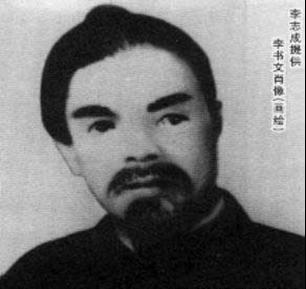
Li ShuWen ( 李書文 1864-1934)
Le grand maître de kung fu Li Shu Wen est au Baji Quan ce que Wong Fei Hung est au Hung Gar. Il s'agit de la figure dominante de la lignée des maîtres du Baji Quan. En effet, plusieurs branches du Baji Quan actuel est directement lié à Li Shu Wen, décédé en 1934. Voici ci-dessous, des articles tirés du web sur ce grand maître de la lignée du Baji Quan ensignée par Sifu Stephen Ip au Vajra Gym.
Maîtres célèbres et différents courants du Baji Quan
Lors des générations successives, le CangXian compta un grand nombre de pratiquants renommés issues des différentes lignées de pratiquants. Parmi ceux-ci, le plus célèbre fut certainement Li ShuWen (李書文 1864-1934). Issu d’une famille de fermiers du CangXian, Li ShuWen étudia le Baji Quan et le maniement de la grande lance auprès d’un pratiquant de MengCun puis étudia le Pigua Zhang auprès d’un des élèves de Zhang KeMing. En conséquence, il est considéré comme un des premiers à avoir réunifié et combiné ces deux styles. Li ShuWen fut un pratiquant acharné et atteint rapidement un niveau de maîtrise inégalé, en particulier dans l’art de la grande lance du Baji Quan, ce qui lui valut le surnom de « Li le dieu de la lance » (神槍李). Réputé et redouté pour son caractère abrupt et son efficacité au combat, Li ShuWen acquit en outre sa réputation du fait qu’il tua net certains de ses adversaires en leur assenant un seul coup, sans que ceux-ci n’aient le temps de lui porter la moindre attaque. Li ShuWen se confronta tout au long de sa vie à de nombreux pratiquants d’arts martiaux des provinces du nord-est de la Chine (Henan, Hebei, Shandong, etc.), ceci sans jamais essuyer de défaite.
Critiquant le caractère conservateur de l’enseignement du Baji Quan, Li ShuWen accepta de nombreux élèves, dont certains étaient des militaires de haut rang, et qui propagèrent le Baji Quan dans le reste du nord de la Chine. Parmi ses disciples, son premier élève Huo DianGe (霍殿閣) devint le garde du corps de PuYi (溥儀), le dernier empereur Qing. Le plus célèbre des élèves de Li ShuWen fut certainement son dernier disciple Liu YunQiao (劉雲樵 1909 – 1992) qui suivit l’enseignement de Li jusqu’à la mort de celui-ci (de 1916 à 1934).
(english)
Born in 1864, Li Shu Wen, first studied martial arts from Jian Dian Sheng (b. 1785) of Mong Village, home of Bajiquan. He then traveled to Luo Village and studied Piguazhang with Huang Si Hai.
Li was more than just a student. His martial arts were of the highest caliber. This was attested to by the fact that he was never defeated in his life. His spear technique became so powerful that he was known as the "God of the Spear." Born in Zhang Sha Village, he was a native of the famous Cang County, homeland of some of the best Kung Fu in all of China; both geographically AND historically. Gifted with incredible power it was said that he almost never had to strike an opponent twice. He attracted many students who were already formidable martial artists.
Li Shu Wen was not a "nice person." He took on challenges his whole life often boasting to the challenger the movement that would end his life. Even Li's final days was a matter of dispute. Li was challenged to a fight with spears by a much younger man. Though over seventy Li took on the challenge and dispatched his opponent. Furious the fallen boxer's family conspired and had Li poisoned. This was the end of the famous fighter. On the other hand Li was known for impassioned dedication to his art. Every chance he got he practiced his favorite weapon, the Great Spear. His lineage to this day still retains the unusual practice of this weapon.
A great teacher produces great students. Many of those who studied with Li Shu Wen became important in the history of martial arts. Four of his students from Luo Tong Village were Han Hua Chen, Ma Ying Tu, Ma Fong Tzu and Zhou Shu De. These four introduced a form of BaJi Quan to the Central Martial Academy in Nanjing, a very important organziation at the time dedicated to "modernizing" martial technique and education. This was during the struggling Republican period.
Other disciples include warlords such as Li Jin Lin (a famous swordsman), Ren Guo Dong, Zhang Xiang Wu, Na Yu Kuen, Liu Hu Chen and Liu Xu Dong. Li's first real disciple, Huo Dian Ge, became the bodyguard and teacher of Fu Yi, China's Last Emperor. Other people in the BaJi family became the bodyguards of Chiang Kai Shek, and Mao Tse Dong. So, even though these political opponents had deep distaste for one another, they understood the advantage of hiring protectors from the BaJi style also known as the Bodyguard Boxing.
À propos, la théorie comme quoi maître Li Shu Wen serait mort suite à un empoisonnement est remise en question par certaines écoles de Baji Quan...
